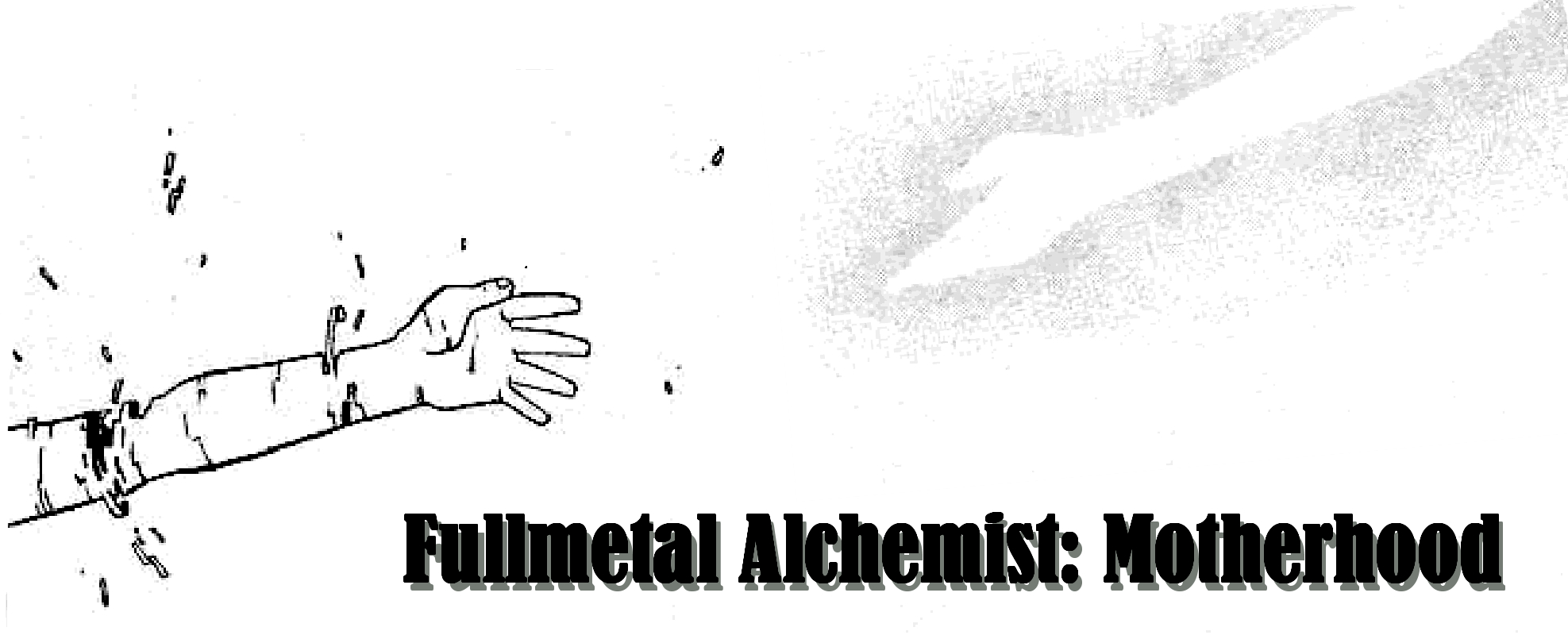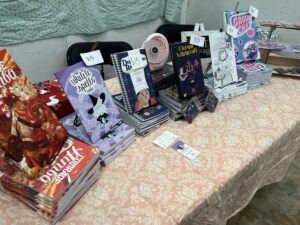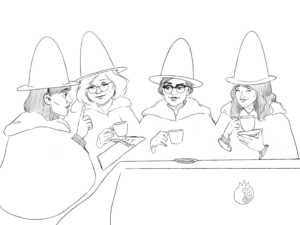Anime moms. What are they good for? For the most part, not a whole lot, actually. Most of the time they’re in the background, packing lunches, sewing hero costumes, and giving protags spirited lectures about picking up their underwear. Either that, or they’re dead — well, they’re only dead if they happen to have a side ponytail. Bleach, Tokyo Ghoul, and Fullmetal Alchemist all exhibit dead moms with the lovely side plait, and they each serve as some sort of catalyst for the protagonist to take action.

For moms like this, it’s impossible to consider how the story would unfold without them. How would our young shounen protag have the motivation to take on the hero’s journey and combat the evil forces that be? Right? …right? The answer, actually, is wrong — at least for most side ponytail moms. They can be taken out of the plot with barely a snip of the metaphorical surgical knife.
But that’s not the case for Trisha Elric.
Basically, what I’m saying is if you think that she’s just another run-of-the-mill anime mom with a side ponytail that dies, you’d be wrong. Most side ponytail moms, like, say, Ryouko from Tokyo Ghoul, die and die quick. She’s meant more as a swift emotional stab to the chest to make readers have a good cry before they move right along with the plot. Who cares about Ryouko except that she, among so many other ghouls, showed Kaneki that maybe ghouls have feelings too?

But this isn’t an article about Ryouko or about how much she doesn’t matter. This is an article about Trisha, and Izumi, Granny Rockbell, and every mom in Fullmetal Alchemist and how much they do matter. They absolutely cannot be removed from the story without completely changing the course of the narrative. Their effect on Ed and Al is so powerful, not even alchemy — supposedly the most powerful force throughout the entire series — can ever hope to compare.

Trisha especially is far too integral to the plot to be cut out. It’s because of her that the brothers set about trying to learn alchemy at all. And it’s because of her that they commit the ultimate crime: human transmutation. Ed and Al feel her absence so profoundly, they look for her everywhere they go, whether they realize it or not. But the series is unforgiving, and in many places where a mother should be, there isn’t. Winry has no mother; Nina has no mother, not even the homunculi do. Without Trisha, the brothers are left with an empty hole, and they are constantly reminded just how dearly they miss her, just how unconditional her love truly was, and just how alchemy will never be powerful enough to recreate her presence. Unfortunately, it costs them an arm and a leg (and a body) to figure that bit out.

Let’s revisit the Shou and Nina Tucker arc. Just in case you forgot about it, here’s a quick recap: they’re a deceptively cute little family, but with a noticeable gap in the ideal nuclear set-up. Dad, dog, daughter… but where’s Mom? As it turns out, years earlier, Shou turned his wife into a chimera. Eventually, he turns his daughter, Nina, into one, too, combining her with their dog.

The brothers seem to notice Mrs. Tucker’s absence right away. Like themselves, Nina not only lost her mother, but she lost her body, too. It’s a painful reminder not only of their failure, but even further still alchemy’s failure. Just like they are powerless to bring Nina back, they will never be able to bring back Trisha.

Luckily enough for the Elrics, there’s a plethora of potential moms out there. The first mom they come across is Pinako Rockbell, senior mechanic and Winry Rockbell’s grandma. After Trisha’s death, she all but adopts them as her own flesh and blood. She feeds them, clothes them, ensures their schooling, the whole nine yards. Her care is the only reason that the brothers had any kind of home as young children. It’s a tenderness and a dedication that alchemy, even it its most ideal form, will never match. Alchemy can create a house, but it can never create a home.

Their search for motherhood eventually takes them to Izumi Curtis, butcher and side alchemical genius. We all know her as Ed and Al’s teacher, and the other major character in the series to attempt human transmutation. She’s a bit shouty and has one hell of a temper, but there is no mistaking her as anything but a mother. Technically, it wouldn’t even be a stretch to call her a mom with a ponytail. Seriously, just look how tender this scene is.

Except, unlike regular anime moms with ponytails, the script is completely flipped for Izumi: she’s not the one that dies; before the Elrics meet her, she loses her child (plus, her ponytail isn’t really to the side either, but details, details). And just like Ed and Al, she tries to get back what she’s lost through alchemy. Except, big surprise, it doesn’t end up working, because just like I’ve been saying this whole time, motherhood is a power beyond alchemy and its reach.
The important thing about motherhood, though, and something Fullmetal Alchemist conveys throughout the narrative, is that it’s not a once-in-a-lifetime experience. The loss of motherhood — of the mother who raised you, or the children you’ve raised — will always be painful, and that pain will never truly go away, but that role doesn’t have to stay empty forever. For example, the Elric brothers plus Izumi equals one whole brand new motherhood, alchemy free!

Ed, Al, and Izumi finally become an official loving and supportive family the minute she “expels” them from being her students. Their relationship is no longer formal, but close, familial. But even before that official acknowledgement, the dynamic of mother and child is there. Her affect on the boys is just as powerful as Trisha’s, if not more so. Sure, they lost an arm, a leg and a body for Trisha, but Izumi shaped their lives around her teachings and moral values. From their eating habits, to their sparring, to the practice of alchemy itself — Izumi carefully nurtured Ed and Al in ways that shape the very decisions that will carry them through the future.

Mothers are truly the most powerful beings in the universe, and it’s the Elrics’ first trip to Rush Valley that exhibits this best. While there, Winry and Ed help a pregnant woman give birth to her first child, and at the end of the ordeal, Ed comments on just how incredible the entire process is. He basically sums up this article in a single panel, and admits that maybe alchemy isn’t all that. It can never and will never compare to the power of motherhood.

Motherhood doesn’t need a biological relationship. A mom doesn’t even need to conceive to be a mom. It’s not a complicated transaction like alchemy. There is no equivalent exchange involved. Sure, alchemy can create a fake consciousness in a flask, fix an entire house, or even take life away, but it can never nurture life, not the way a mother can. Motherhood is complete, pure, unconditional love. With every bond the Elric brothers make, Fullmetal Alchemist shows us that all it takes is love, guidance, support, and presence, all without a price.




